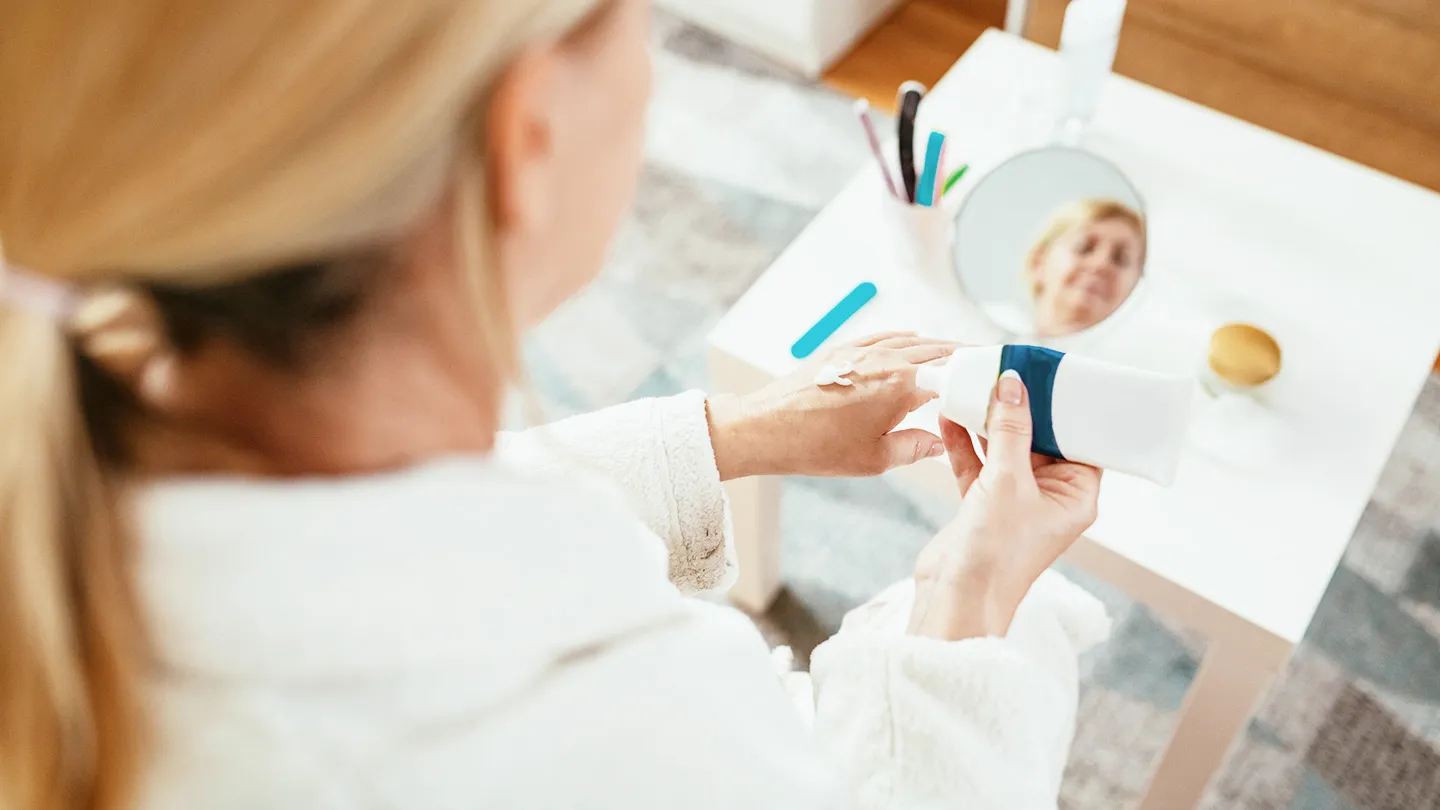“This isn’t just cosmetic; low estrogen also affects overall well-being, so addressing it systemically can improve both how you feel and how you look,” Berry says.
These products contain estradiol, whereas creams designed for cosmetic use tend to contain estriol, explains Geeta Yadav, MD, a board-certified dermatologist and founder of Facet Dermatology in Toronto.
“These are both forms of estrogen but differ in function and potency. Estriol — the dominant form of estrogen in the body during pregnancy — is weaker. Estradiol — the most potent form of estrogen the body can produce — is responsible for female secondary sex characteristics, fat distribution, and the maintenance of reproductive tissues,” Dr. Yadav says.
Others contain methyl estradiolpropanoate (MEP). While it’s not a hormone, explains Barry, MEP mimics the effects of estrogen on the skin, but it doesn’t enter the bloodstream and doesn’t affect your hormone levels.
Facial creams containing phytoestrogens, MEP, and very low doses of estriol are available over the counter, says Dr. Badreshia-Bansal. But she notes prescription-only facial creams tend to be stronger and more effective because they contain higher doses of estriol.
“Over-the-counter products are often too weak to significantly impact wrinkles or collagen production,” Badreshia-Bansal says. “So, while OTC products are unlikely to be harmful, they are also unlikely to deliver the same anti-aging effects seen in small clinical studies using prescription-strength topical estrogen.”
However, estradiol isn’t approved for cosmetic use, and little to no testing has been done to warrant its effectiveness or safety for this purpose, she says.
“Vaginal estrogen creams are designed to be used and tested on the thinner, more vascular skin cells — not on the epidermis of the face,” says Dr. Chacon. “Without more studies, dosage can be inconsistent, and long-term use can wreak havoc on the delicate balance of hormone levels.”
Be sure to speak with your healthcare provider before starting any new estrogen product to ensure it’s safe for you.
Read the full article here




